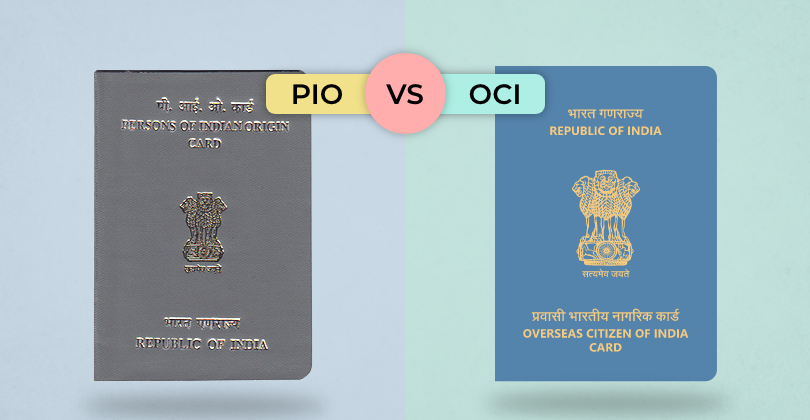Are you of Indian origin and living abroad? You've probably come across terms like PIO and OCI. These cards offer different benefits, but it can
Financial literacy is a vital skill that empowers individuals to make informed decisions about their money. Whether you are planning for your retirement, investing in stocks, or managing your household budget, a basic understanding of financial terms is essential.
In this article, we demystify finance by exploring the top 25 basic financial terms that everyone should be familiar with. These terms are the building blocks of financial literacy and can help you navigate the complex world of finance with confidence.
📗 Related reading- Top 15 Personal Finance Mistakes That Everyone Should Avoid
Why Does Financial Literacy Matter?
Before diving into the core financial terms, it is important to emphasise why financial literacy matters. In today's fast-paced world, where financial decisions can have a profound impact on our lives, being financially literate is a necessity, not a luxury.
-
Empowerment: Financial literacy enables individuals to take charge of their finances and empowers them to make the right decisions. It enables you to make informed choices, from budgeting effectively to investing wisely.
-
Avoiding pitfalls: Understanding financial terms helps you avoid common pitfalls, such as falling into debt traps or making ill-advised investments.
-
Goal achievement: Whether your goal is purchasing a home, starting a business, or planning a comfortable retirement, financial literacy is the foundation upon which you can build your financial dreams.
-
Resilience: Financial literacy equips you to weather financial storms, like unexpected medical expenses or job loss, by having an emergency fund and contingency plans in place.
-
Generational impact: Making the next generation financially literate ensures they have the knowledge to make sound financial choices, creating a positive impact on families and communities.
-
Entrepreneurship and wealth creation: Financial literacy and understanding financial terms and concepts are crucial for individuals who aspire to become entrepreneurs or wealth creators. It equips them with the knowledge to manage business finances, secure investments, and navigate the complexities of wealth management.
-
Retirement planning: Financial literacy is essential for planning a financially secure retirement. Understanding concepts like investments, pensions, and savings allows individuals to make informed decisions about retirement planning.
-
Avoiding financial exploitation: Understanding basic financial terms can help individuals protect themselves from scams, fraud, and financial exploitation. Awareness of financial schemes and warning signs of fraudulent activities empowers individuals to safeguard their financial assets.
The Consequences of Financial Illiteracy
Understanding basic financial terms and financial management terms is pivotal to achieving financial success. Financial illiteracy can lead to accumulating substantial debt, often due to misinterpreting the terms and conditions of loans or credit agreements. This, in turn, results in financial stress as individuals struggle to manage their financial obligations.
Without a grasp of basic financial terms and concepts, individuals may miss opportunities for investments and financial growth. They may make uninformed decisions regarding savings and investment options, ultimately hindering their potential for wealth accumulation. Not being able to understand basic financial terms and concepts can also lead to difficulties in managing day-to-day expenses, potentially affecting one's quality of life.
Mastering the Language of Wealth: 25 Essential Financial Terms
Now that we have established the importance of financial literacy, let us delve into the top 25 basic financial terms that will set you on the path to financial success.
-
Asset: An asset is anything of value that you own, such as cash, real estate, stocks, or a car. Assets are typically divided into two categories: tangible (physical assets like a house) and intangible (non-physical assets like stocks or bonds).
-
Liability: A liability is a financial obligation or debt that you owe to someone else, such as a mortgage, credit card debt, or a personal loan.
-
Income: Income is the money you earn, often through employment, investments, or rental properties. It can be in the form of wages, salaries, dividends, or interest.
-
Expense: Expenses are the costs associated with living, such as rent or mortgage payments, groceries, utilities, and entertainment. Managing expenses is crucial for maintaining financial stability.
-
Budget: A budget is a financial plan that outlines income and expenditure projections over a specific period. It helps you track and control your spending, ensuring you live within your means.
-
Savings: Savings refer to money set aside for future use, emergencies, or specific financial goals. Having a savings account is essential to building financial security.
-
Interest: Interest is the cost of borrowing money or the return on investment for lending money. It is typically expressed as a percentage of the principal amount and can be simple or compound.
-
Principal: The principal is the initial amount of money borrowed or invested. Interest is calculated based on the principal.
-
Credit Score: A credit score is a numerical representation of your creditworthiness. Lenders use it to assess your risk as a borrower. A higher credit score indicates better creditworthiness.
-
Debt: Debt is money you owe to creditors. It can be in the form of loans, credit card balances, or other financial obligations.
-
Equity: Equity is the value of an asset minus any liabilities or debts associated with it. For example, in real estate, it is the difference between the property's market value and the outstanding mortgage.
-
Investment: An investment is the allocation of money with the expectation of generating a profit or earning a return in the future. Common investments include stocks, bonds, and real estate.
-
Diversification: Diversification is a risk management strategy that involves spreading your investments across different asset classes or industries to reduce the impact of a poor-performing investment on your overall portfolio.
-
Portfolio: A portfolio is a collection of investments owned by an individual or entity. It can include stocks, bonds, mutual funds, and other assets.
-
Risk: Risk refers to the potential for loss or negative financial outcomes. All investments carry some level of risk, and understanding your risk tolerance is crucial for making informed investment decisions.
-
Return on Investment (ROI): ROI is a measure of the profitability of an investment. It is calculated by dividing the gain or profit from an investment by the initial investment cost and expressing it as a percentage.
-
Compound Interest: Compound interest is interest calculated on both the initial principal and any accumulated interest from previous periods. It can significantly boost the growth of savings or investments over time.
-
Stock: A stock represents ownership in a company. When you own a share of stock, you have a claim on the company's assets and earnings. Stocks are bought and sold in the stock market.
-
Bond: A bond is a debt security that represents a loan given by an investor to a borrower, typically a corporation or government. Bonds pay periodic interest and return the principal amount at maturity.
-
Dividend: Dividends are payments made by a corporation to its shareholders. They are typically paid out of a company's earnings and are a way for investors to receive income from their stock holdings.
-
Market Capitalisation: Market capitalisation, or market cap, is the total value of a publicly traded company's outstanding shares of stock. It is calculated by multiplying the stock's current market price by the number of outstanding shares.
-
Inflation: Inflation is the rate at which the general level of prices for goods and services rises, leading to a decrease in purchasing power. It is important to consider inflation when planning for long-term financial goals.
-
Mutual Fund: A mutual fund is an investment vehicle that pools money from multiple investors to invest in a diversified portfolio of stocks, bonds, or other securities. They are managed by professional fund managers.
-
Tax Deduction: A tax deduction is a financial benefit that allows individuals and businesses to reduce their taxable income, thereby lowering the amount of income subject to taxation. It is an expense that can be subtracted from your taxable income to reduce your tax liability.
-
Credit Card: A credit card is a financial tool that allows you to make purchases on credit, with the understanding that you will pay the balance back later, often with interest. It is important to use credit cards responsibly to avoid accumulating debt.
Conclusion
Financial literacy is a fundamental skill that can enhance your overall quality of life; it is not just for specialists or finance professionals. Your quest for financial empowerment might get off to a fantastic start when you understand these top 25 fundamental financial terms.
These terms will provide you with the knowledge and assurance to make wise financial decisions, whether managing your everyday spending, saving for retirement, or thinking about investing. Take charge of your finances, embrace financial literacy, and ensure success on your road to financial security.
AUTHOR
KreditBee As a market leader in the Fintech industry, we strive to bring you the best information to help you manage finances better. These blogs aim to make complicated monetary matters a whole lot simpler.







